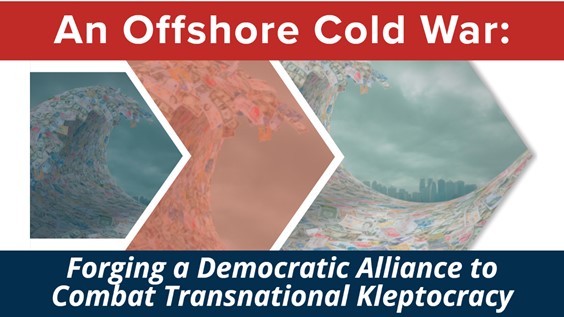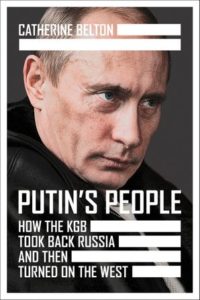
We hear the word “corruption” and immediately think of kleptocrats being handed suitcases of cash or bribe-taking public officials in developing countries who are living well beyond their meager official salaries, says Brian Klaas, an associate professor of global politics at University College London and the author of “Corruptible: Who Gets Power and How It Changes Us.”
 But we don’t think of the London bankers or the Wall Street accountants or the Miami lawyers who ensure that the oligarchs and kingpins can move their money freely around the world, unencumbered by taxes or regulation or the prying eyes of journalists. They might not steal the money themselves, but they are certainly accomplices. And it’s all done in plain sight, he writes for The Washington Post.
But we don’t think of the London bankers or the Wall Street accountants or the Miami lawyers who ensure that the oligarchs and kingpins can move their money freely around the world, unencumbered by taxes or regulation or the prying eyes of journalists. They might not steal the money themselves, but they are certainly accomplices. And it’s all done in plain sight, he writes for The Washington Post.
Despite Britain’s diplomatic and rhetorical support for Ukraine, its complacency over Russian kleptocracy has effectively empowered the Kremlin elite, CEPA analyst Edward Lucas wrote for the London Times.
Beyond the “enablers” identified by Lucas who facilitate money laundering, there is another form of enabler, one that seeks to launder reputations and shut down journalistic inquiry, adds Susan Coughtrie, Project Director at the Foreign Policy Centre think tank:
 The five legal cases pursued against the journalist Catherine Belton and her publisher last year for the book Putin’s People gave one of the most public insights into this tactic, often referred to as SLAPPs (strategic lawsuits against public participation). The vast majority of these threats are hidden, sent to journalists all over the world by UK lawyers in letters marked “private and confidential”, threatening costly legal action if information about their wealthy clients’ potential wrongdoing is not scrubbed from the public record. This is highly damaging for media freedom, tackling corruption and ultimately democracy.
The five legal cases pursued against the journalist Catherine Belton and her publisher last year for the book Putin’s People gave one of the most public insights into this tactic, often referred to as SLAPPs (strategic lawsuits against public participation). The vast majority of these threats are hidden, sent to journalists all over the world by UK lawyers in letters marked “private and confidential”, threatening costly legal action if information about their wealthy clients’ potential wrongdoing is not scrubbed from the public record. This is highly damaging for media freedom, tackling corruption and ultimately democracy.
The US already has anti-SLAPP laws in place in some states and recently launched a global Defamation Defence Fund to protect journalists from this form of attack. The UK needs an anti-SLAPP law too, she states.
Transnational kleptocracy combines “19th-century autocracy with 21st-century finance” to empower dictators to use illicit wealth to corrode both foreign and domestic institutions, analyst Oliver Bullough argues in a new paper from NED’s International Forum for Democratic Studies.
Against the backdrop of intensifying aggression toward Ukraine exerted by Russia’s kleptocratic regime, the forum hosts a conversation* with Bullough and German Marshall Fund President Heather Conley about a threat to democracy with urgent consequences for national security, human rights, and development. Democracies must develop a unified response to this critical challenge, much as they did during the fight against communism during the Cold War, by focusing on shared fundamental values of political and personal freedom, free markets, free speech, and independent judicial systems, Bullough contends in his paper, “An Offshore Cold War: Forging a Democratic Alliance to Combat Transnational Kleptocracy.”
*Moderated by Damon Wilson, President and CEO, National Endowment for Democracy.
Wednesday, March 2, 2022. 10:00am – 11:00am ET (view the start time in your location)







